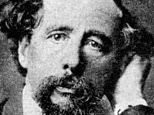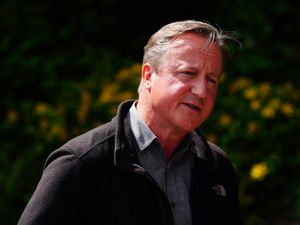UPDATE: The University of Manchester has sparked outrage by labeling Charles Dickens a ‘racist’ due to an 1851 essay he co-authored that criticizes Chinese society. This urgent announcement comes as the university, which hosts around 9,000 students from mainland China, warns students that the essay ‘expresses racist views, particularly against Chinese people.’
The controversial decision has drawn fierce criticism, with detractors branding it ‘historically illiterate’ and accusing the university of prioritizing its financial ties with China over academic integrity. This incident follows closely on the heels of another controversy involving Sheffield Hallam University, which halted a human rights investigation into China under pressure from Chinese authorities.
The essay in question, titled The Great Exhibition and the Little One, was penned alongside poet and critic Richard Horne. Experts suggest that Dickens largely authored the piece, which sharply contrasts the perceived superiority of Western civilization with a stagnant China. The article notably praises England for its ‘commercial intercourse with the whole world’ and criticizes China for ‘coming to a dead stop.’
Frank Furedi, an emeritus professor of sociology at the University of Kent, commented, “Highlighting the economic and political superiority of the West in the middle of the 19th century was a self-evident fact.” He expressed concern over the university’s approach to historical context, stating, “What we should worry about is not so much Dickens’ racist views but the historical illiteracy of the University of Manchester’s sensitivity police.”
The University of Manchester operates the Confucius Institute in partnership with Beijing Normal University and runs the University of Manchester China Centre in Shanghai. Tensions have escalated recently, as the UK Government prevented the university from licensing new technology to a Chinese company due to national security concerns.
A university spokesperson defended the decision, asserting, “Our approach to teaching and research is guided by academic integrity and intellectual curiosity – not by any external relationships or partnerships.” However, critics, including Lord Young, founder of the Free Speech Union, have called for transparency regarding foreign funding dependencies in UK universities.
As this situation develops, it raises important questions about academic freedom and the influence of international relationships on educational institutions. The university’s warning has been communicated to students enrolled in an English Literature module titled Victorian Rights: Victorian Wrongs. Those concerned about the content are encouraged to engage in discussions with their course tutors.
This unfolding controversy is expected to have significant implications for higher education and the discourse surrounding historical figures like Dickens. As reactions continue to pour in, observers are left questioning the balance between cultural sensitivity and historical context in academia. Stay tuned for further updates on this developing story.







